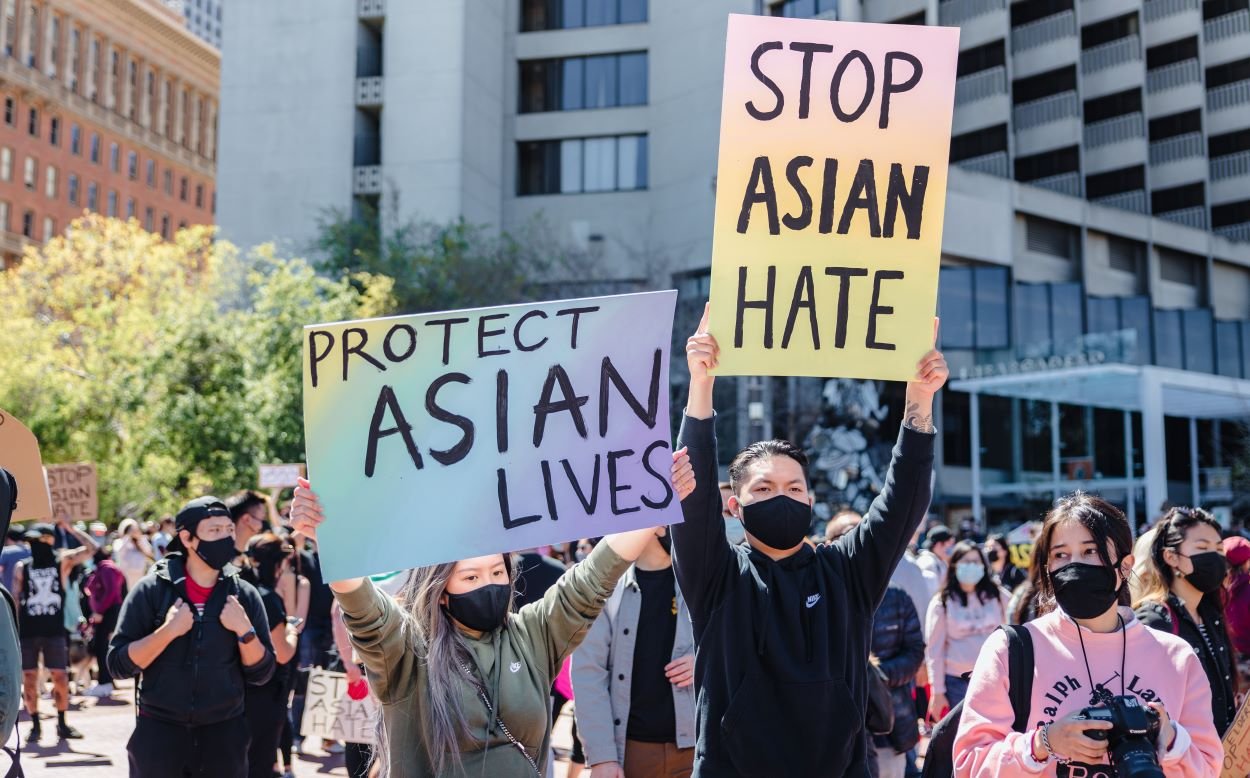Has Anti-Asian Hate Crime Really Decreased?
/A new report from the California Department of Justice notes that hate crimes against Asian Americans have dramatically dropped since last year. But civil rights advocates say the data does not accurately reflect the threats the community continues to face.
(Photo by Jason Leung, via Unsplash)
In 2022, 140 hate crimes against Asian Americans were counted by the DOJ, compared to 247 in 2021. The drop comes amid an overall 20% rise in hate crimes in California, from 1,763 in 2021 to 2,120 in 2022.
As in previous years in California, the most heavily-impacted ethnicity are Black Americans who suffered 652 attacks in 2022, a 27% increase from the previous year.
Hate crimes against the LGBTQ community are also on the uptick, rising by almost 39%. And anti-transgender attacks rose by 56% in the progressive Golden state.
Bullying and Shunning
Data from the web portal Stop AAPI Hate notes that more than 11,000 acts of hate against Asian Americans and Pacific Islanders have been reported to the site since March 2020, including discrimination, bullying, harassment, shunning, or assault. Many of these acts of discrimination may be civil rights violations, but go unreported nonetheless.
A new report from the organization concludes that more than half of AAPIs have experienced some form of discrimination.
Manju Kulkarni, who co-founded Stop AAPI Hate in 2020 with fellow civil rights activists Cynthia Choi and Russell Jeung, told Ethnic Media Services that she has not seen a decrease in the number of hate incidents reported to the portal in 2022. “The numbers reported to us have stayed pretty steady,” she said.
2024 Elections
The community continues to live in fear, said Kulkarni. “We have significant concerns about the 2024 election in the current political landscape, and believe hate crimes and incidents will continue to be an issue.”
Many AAPIs do not report hate attacks, said Kulkarni, adding they are fearful of law enforcement or protecting their immigration status. Seeing a hate crime report in the media sometimes alerts them to reconsider their own brush with hate and whether it may have also been a crime, she said.
Kulkarni also noted that the majority of reports on the portal consist of hate incidents which do not involve a criminal element. “Most law enforcement agencies neither have to collect hate incident data, report it, or make referrals to other agencies. It creates a gap for community members who don’t know where to turn,” she said.
Spy Balloons
Hate crimes and incidents against the AAPI community have risen dramatically since 2020, owing in part to politicians on both sides of the aisle vilifying China as “public enemy number 1.” The perception that China was responsible for the Covid-19 pandemic, a damaged trade relationship, and accusations of Chinese “spy balloons” flying over the U.S. have consistently served as fodder to consistently denigrate the Chinese American community and — by extension — anyone who looks East Asian.
Anti-Chinese American discrimination has taken several forms beyond hate crimes and incidents. Several states have attempted to re-enact the 1913 Alien Land Act, in which Chinese nationals were prohibited from buying land. In Florida, legislation went into effect July 1 prohibiting Chinese citizens from buying homes or agricultural land near military installations or loosely-defined “critical infrastructure.” A similar bill died in the Texas state Legislature this spring, but other states are considering their own prohibitions.
A bill being considered by the Louisiana state Legislature disallows Chinese citizens from being able to rent apartments or homes.
API Equity Budget
In 2021, Governor Gavin Newsom introduced the $165 million API Equity Budget, allocating funding to community-based AAPI organizations and media aiming to stem anti-Asian hate crimes and incidents, and also to change the stereotyped narratives about the community. The governor allocated an additional $40 million to the fund in this year’s budget.
“We are beginning to see the impact of the grant,” Kulkarni told EMS, adding that direct intervention programs are in full swing. Programs such as the CA vs Hate hotline — where a victim can report a crime and receive free support services, LA vs. Hate, which provides similar services, as well as the Los Angeles Civil + Human Rights and Equity Department provide necessary resources and opportunities for accountability and redress, she said.
Moreover, a survey Stop AAPI Hate has undertaken in collaboration with the National Opinion Research Center at the University of Chicago concludes that the AAPI community trusts community-based organizations the most. “Funding is critical for intervention and prevention,” she said.
The findings of the NORC survey will be released in August.
This article was first published in the Ethnic Media Weekly, July 14, 2023.




